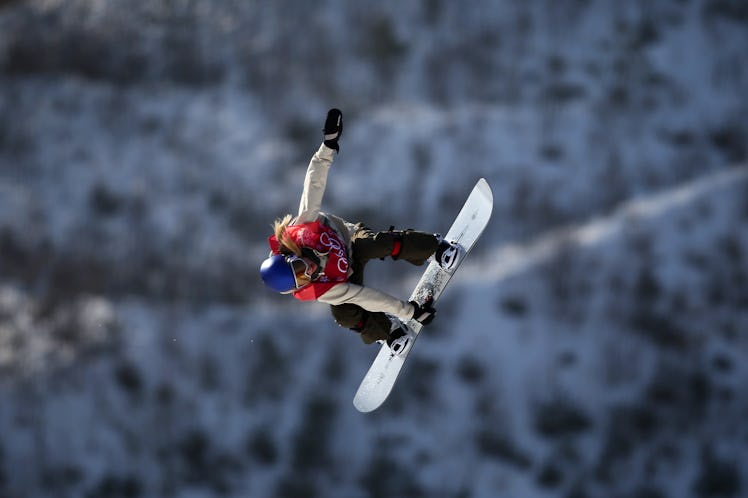
Why Olympic Athletes' Rest Days Are Just As Important As Their Training Sessions
Olympic athletes are some of the most dedicated and hardworking humans on the planet. Training all day every day to achieve the dream of taking home that shiny gold medal requires so much persistence and passion, but as otherworldly as they may seem, Olympic athletes have rest days in their routines, just like you and me. Sure, Olympians are literally next -level with their skills, but their bodies and minds need time to restore and reset just like anyone else's.
If you have a workout routine that you're personally dedicated to, you've probably heard that rest days are so crucial for repairing and rejuvenating your body and mind. When you go hard at the gym, it damages your muscle fibers and creates mini tears in them. While that sounds bad, that's actually what helps you build muscle in the long run. But you have to take that time off to rest so your muscles can do their thing, reconstruct and recover, and so you can allow yourself to keep up with your workout routine without completely wearing your body down.
But as for your favorite Olympic athletes? I don't know about you, but I just can't picture Shaun White or Chloe Kim taking a lazy day, like, ever.
While it's true Olympic athletes do take occasional rest days, it's definitely not with the same frequency as non-athletes.
Bustle reports that, for the most part, rest days depend on the athlete and their personal training schedule. Some athletes train right through the pain, while others give themselves some well-deserved TLC and cherish their days off.
What many Olympic athletes do is allow their muscles to repair and restore, without taking a full day off. This is called an active rest day, and the idea is to basically keep your body moving with low-intensity workouts that'll encourage your muscles to recover, without putting too much of a strain on them in the process.
Again it's all up to the individual athlete in terms of how to take an active rest day. Olympic snowboarder Chloe Kim, for example, has said she loves cycling to soothe her knees, and figure skater Alex Shibutani says he would go for a casual run on one of his rest days. Fun fact: According to CNN, at one point in his Olympic career, Michael Phelps apparently never took a rest day. Mind you, I'm not exactly recommending that as a strategy, but hey, I suppose it works for some people.
In addition to active rest days, a key part of many Olympic athletes' training schedules is getting a strict eight to 10 hours of sleep every single night.
Without the proper amount of sleep, Olympic athletes simply wouldn't be able to do what they do, and many of them consider a good night's sleep to be just what their muscles need to rest and recover from their strenuous daily training. In fact, Olympic skier Mikaela Shiffrin is apparently notorious among the athletes for sticking to a pretty strict napping schedule, in addition to clocking in an impressive 10 hours of sleep every single night.
There are even Olympic sleep coaches dedicated to making sure that the athletes get the proper amount of shut-eye so that they can perform to the best of their ability. Sleep specialist Dr. Mark Rosekind explained the importance of this in an interview with Huffington Post:
As athletics become more and more competitive to where a millisecond can be the difference between a gold and silver medal, everyone is looking for any possible edge they can get — sleep is that edge.
Dr. Rosekind added that having a regular sleep schedule can enhance an athlete's performance, overall safety in their sport (think less injuries), and it even helps keep their moods stable.
As for how these Olympians optimize their snooze time, Dr. Rosekind has used things like blackout curtains, white noise machines, dawn simulator alarm clocks, and pre-bedtime unwinding routines to help athletes shut down when they need to, so they can train to their fullest potential by the time they wake up.
Real talk: Olympic athlete or not, sleep has the power to do wonders for your body. Even though most of us aren't exactly training to slay the slopes of PyeongChang, or land an otherworldly triple axel, we can all take a tip from these athletes that continue to inspire with their talents day in and day out: Get some rest, fam. Olympians' orders.
Erin Jackson is an inline skating world medalist and roller derby MVP. She dreamed of skating in the Olympics, but to do that, she had to get on ice. She took her first steps on a long-track course in 2016 and started training professionally in September 2017. Four months later, she qualified for the Olympic Winter Games. Check out Elite Daily Insights' video on Jackson's incredible story: